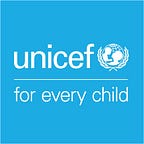Burundians welcomed in Canada
After a lifetime as refugees, Burundian César Sindayiheburar and his family resettled in Canada from Tanzania.
Last year, Canada welcomed more than 300,000 immigrants. More than 38,000 of these were Syrian refugees, yet thousands of refugees from elsewhere were also resettled. Some, like César and his family, were born refugees and have spent their whole life in camps. Resettlement workers acknowledge that refugees like them need greater support than their Syrian counterparts.
Chance, 10, (right) and Elizabeth-Gladness, 6, (centre) play in the snow outside their home before heading to school as Marie-Gentille, 12, (left) and Max-Carlos, 2, watch. The family arrived in Charlottetown on Prince Edward Island in September 2016.
Karinia, who is pregnant with her fifth child, has her hair braided by her daughter Marie-Gentille at their home. The child, due in Spring, will be the first of their family not born a refugee — he or she will be born a Canadian citizen, a testament to the nation’s openness.
César, his wife Karinia and son Max-Carlos walk through a blizzard to their English language classes, which the couple attend every weekday. Unable to afford a car and living far away from public transport, the hour long walk each way takes a toll on Karinia who is four months pregnant.
Karinia attends her English language class. Karinia’s English is improving, but unlike many of the Syrian refugees resettled in Canada, she has little formal education and no professional qualifications. It will be challenging for her and her husband César to find well-paying jobs.
César helps his daughters Elizabeth-Gladness, Chance and Marie-Gentille (right to left) with their homework. This is the first time the children have had access to regular quality primary education.
“My first concern and hope is for their education,” César says.
César picks up some meat at the grocery store. Before the war in Syria, many of the people who are now refugees lived middle class lives. But a lifetime in refugee camps means Cesar and his family lack the points of reference that could help prepare them for a new life in Canada.
The family make gingerbread cookies with neighbors Joyce Bayly-Inwood and Mary Jane MacDonald (in the kitchen). The children speak no English or French, Canada’s two official languages, while Syrian children are likely to have had some English language education before resettlement.
Chance (right) and Elizabeth-Gladness sort through the donated clothes they have been given by church groups for the winter. The many challenges faced by the family are tempered by the opportunities at hand, especially for the children.
Karinia gets Max-Carlos ready for school as Chance looks out the window of their home. It is the first time the family have lived in a proper house, a house with heating in the winter and air conditioning in the summer, running water direct to the sink and indoor plumbing.
Marie-Gentille, Elizabeth-Gladness and Chance Rosine (right to left) make snow angels after a snowstorm.
While Canada’s pathway to citizenship involves snowstorms and sub-zero temperatures, César says the day the government offered to resettle his family, he “[…] was very happy.”
Learn more about the refugee and migrant crisis.
